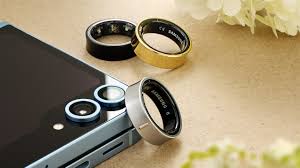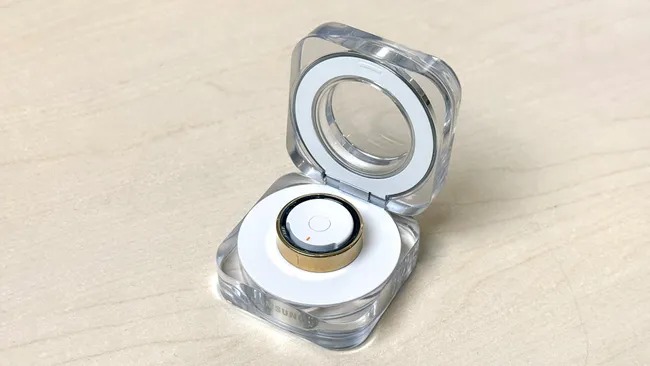Samsung Galaxy Ring 2 — everything we know so far. The Samsung Galaxy Ring 2 is shaping up to be one of the most anticipated wearable devices, combining advanced health tracking, cutting-edge technology, and a sleek design. As more consumers shift their focus toward compact, smart wearables, Samsung’s Galaxy Ring 2 appears to be a response to this growing demand for smaller, yet powerful devices. This smart ring is expected to integrate sophisticated features like biometric monitoring, activity tracking, and seamless connectivity, making it a formidable contender in the wearable technology market.
The evolution of wearable devices has been rapid, transitioning from bulky fitness trackers to compact and versatile smartwatches. However, the emergence of smart rings marks a significant shift in design philosophy, focusing on minimalism while retaining robust functionality. Samsung’s Galaxy Ring 2 is believed to represent the pinnacle of this trend, offering users a device that blends into daily life while delivering comprehensive health insights. For consumers who find smartwatches too intrusive or bulky, the Galaxy Ring 2 provides a subtle alternative that does not compromise on performance.

The first-generation Galaxy Ring laid the groundwork by offering features such as heart rate monitoring, sleep tracking, and basic activity metrics. With the Galaxy Ring 2, Samsung is expected to refine these capabilities while introducing new functionalities aimed at improving accuracy and usability. It is likely to feature an advanced suite of sensors that monitor vital health parameters, including blood oxygen levels, heart rate variability, and even electrodermal activity. These additions will allow users to gain deeper insights into their overall wellness, making the device a valuable tool for health-conscious individuals.
Samsung’s investment in health technology is evident, with the Galaxy Ring 2 poised to integrate seamlessly with the company’s broader ecosystem of devices and services. The ring will likely pair with Samsung Health, the company’s flagship health and fitness app, to provide users with a centralized hub for their wellness data. This integration will allow you to monitor trends over time, set personalized fitness goals, and receive actionable insights. Whether you are tracking sleep patterns, daily activity, or stress levels, the Galaxy Ring 2 will aim to offer a holistic approach to health management.
One of the most intriguing aspects of the Samsung Galaxy Ring 2 is its compact form factor. Unlike larger wearables that can feel cumbersome during prolonged use, smart rings are designed to be lightweight and unobtrusive. Samsung’s engineering efforts will likely focus on ensuring that the Galaxy Ring 2 remains comfortable to wear throughout the day and night while maintaining durability. Materials such as titanium or stainless steel may be used to strike a balance between weight, strength, and aesthetics. Additionally, the device may incorporate water resistance to ensure it can withstand daily activities, including workouts and handwashing.
Battery life is a critical consideration for any wearable device, and the Galaxy Ring 2 is expected to address this challenge with significant improvements. Unlike smartwatches, which often require daily charging, smart rings have the advantage of consuming less power due to their smaller displays and energy-efficient components. The Galaxy Ring 2 may offer battery life that lasts several days on a single charge, making it a convenient option for users who value reliability. Wireless charging or a compact charging dock could further enhance the device’s usability, ensuring that recharging is quick and hassle-free.
In terms of connectivity, Samsung will likely ensure that the Galaxy Ring 2 integrates smoothly with smartphones and other devices within its ecosystem. Bluetooth Low Energy (BLE) technology is expected to be a key component, enabling seamless data transfer while conserving battery life. The device could also leverage NFC (Near Field Communication) capabilities to support contactless payments and authentication, further expanding its functionality. As a result, the Galaxy Ring 2 may serve as more than just a health tracker, evolving into a versatile tool for everyday convenience.
Samsung has consistently demonstrated its commitment to innovation, and the Galaxy Ring 2 is expected to reflect this ethos. The device may introduce features that distinguish it from competitors, such as advanced AI-driven analytics that provide personalized recommendations based on user data. For instance, if the ring detects irregularities in sleep patterns or heart rate, it could suggest adjustments to your routine or lifestyle to improve overall wellness. This level of personalization will appeal to users who seek actionable insights rather than just raw data.
Privacy and security are essential considerations for any health-focused wearable device, and the Galaxy Ring 2 will likely incorporate robust measures to protect user data. Samsung is expected to implement end-to-end encryption to ensure that sensitive health information remains secure during transmission and storage. Additionally, users will have control over how their data is shared and accessed, aligning with global standards for data privacy. These features will be particularly important as health wearables become more integrated into daily life, handling increasingly sensitive information.
The market for smart rings is still in its early stages, but competition is already heating up. Brands such as Oura and Motiv have set benchmarks with their offerings, providing users with compact devices capable of tracking various health metrics. However, Samsung’s entry into this space with the Galaxy Ring 2 brings a level of expertise and ecosystem integration that few competitors can match. By leveraging its extensive experience in consumer electronics and health technology, Samsung has the potential to dominate the smart ring market with a product that appeals to a wide range of users.
For users who prioritize fitness and activity tracking, the Galaxy Ring 2 is expected to offer features that go beyond basic step counting. Advanced metrics such as VO2 max, calorie burn estimation, and stress level monitoring will likely be included, providing a comprehensive overview of physical performance. Additionally, the device may support guided workouts and recovery tracking, allowing users to optimize their fitness routines based on real-time feedback. Whether you are an athlete or someone looking to maintain an active lifestyle, the Galaxy Ring 2 will cater to your needs.
Sleep tracking is another area where the Galaxy Ring 2 is expected to excel. With its ability to monitor various sleep stages, including light, deep, and REM sleep, the device will provide detailed insights into your sleep quality. By analyzing trends and identifying disruptions, the Galaxy Ring 2 can help you make adjustments to improve restfulness and overall health. Features such as smart alarms, which wake you up during the lightest sleep stage, could further enhance the sleep tracking experience, ensuring you feel refreshed and energized each morning.
Samsung’s focus on accessibility will also play a significant role in the Galaxy Ring 2’s success. The device is expected to offer a user-friendly experience, with intuitive controls and seamless setup processes. Whether you are a tech enthusiast or someone new to wearables, the Galaxy Ring 2 will aim to deliver functionality without complexity. Customization options, such as interchangeable bands or finishes, may also allow you to personalize the device to suit your style and preferences.
As the release of the Galaxy Ring 2 approaches, speculation surrounding its price and availability continues to grow. Samsung has a history of offering premium devices at competitive price points, and the Galaxy Ring 2 is expected to follow suit. While it may not be the most affordable wearable on the market, its advanced features and ecosystem integration will justify its price for many users. Early adopters and loyal Samsung customers will likely be among the first to embrace the new device, driving initial demand.
The potential applications of the Galaxy Ring 2 extend beyond personal health and fitness. For professionals in fields such as healthcare, the device could serve as a valuable tool for remote patient monitoring, allowing doctors to track vital signs and health trends without the need for frequent visits. Similarly, businesses may explore the use of smart rings for access control, authentication, and productivity tracking. These applications highlight the versatility of the Galaxy Ring 2 and its potential impact across various industries.
the Samsung Galaxy Ring 2 represents a significant step forward in wearable technology, offering a compact, powerful, and versatile device that caters to the evolving needs of consumers. With advanced health tracking, seamless connectivity, and a focus on usability, the Galaxy Ring 2 is poised to set new standards in the smart ring market. Whether you are focused on fitness, sleep tracking, or everyday convenience, the Galaxy Ring 2 promises to deliver an experience that integrates effortlessly into your life. As more details emerge, it becomes clear that Samsung’s latest innovation will play a pivotal role in shaping the future of wearable technology.










Add Comment